NAUGATUCK, CT – Another riding season is here and, for me, another year of serving as a Connecticut Rider Education Program (CONREP) instructor. Classes started today at the site where I teach; Naugatuck Valley Community College in Waterbury, CT and 23 of the 77 of Basic Rider Course classes are already booked. The first opening is in mid-June with classes scheduled through mid-November.
While the beginner rider course is designed for the novice rider, it is very typical to find a mix of prior motorcycle experience among the students in the classes. Each student comes to class with expectations and possibly apprehensions, and this mix of experience requires individual coaching through the exercises. Skills improve and, hopefully, each student rider is prepared to successfully complete the course and earn an “M” endorsement on their driver’s license.
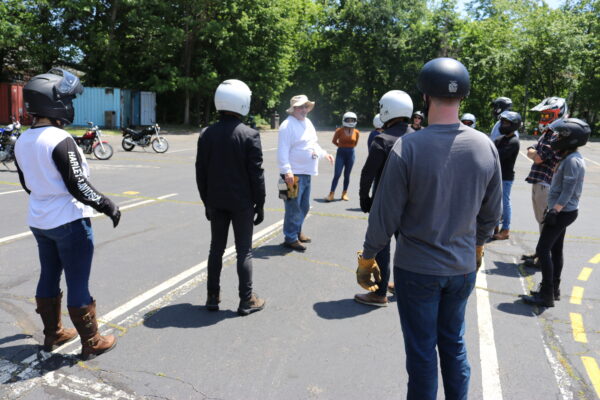
Before enrolling in the BRC, the student should be proficient in riding a bicycle. Being able to balance on two wheels prior to taking the course is required. With most motorcycles having manual transmission, clutch control is an important skill for new riders to master as they learn to control a motorcycle when starting from a stop and for slow speed riding.
Clutch and throttle use and coordination is such a fundamental building block, two exercises are dedicated to developing and practicing the skill. Students who have difficulty tend to release the clutch too rapidly causing the bike to lunge or stall. Another common novice miscue that exacerbates clutch control is attempting to pick up the feet too soon and losing balance.
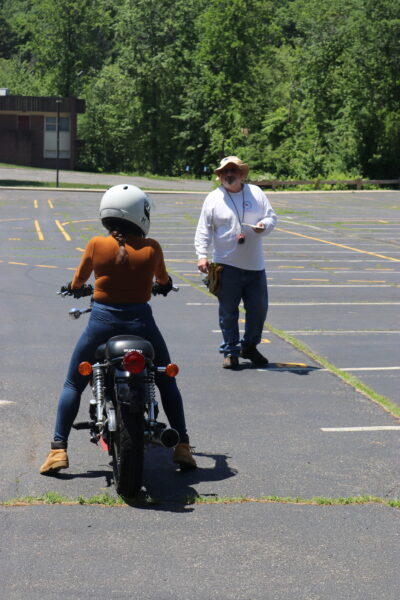
Some students have had dirt bike experience. Many home-taught, noncompetitive dirt bike riders tend to look toward the ground. The ability to steer a motorcycle properly when making turns comes from using visual directional control. Simply put, looking where you want to go.
Looking down is a bad habit that leads to poor corning technique. It also can cause the rider to become less stable or dab a foot down during slow speed maneuvers. Using a good riding posture with head and eyes up, looking well ahead is very common coaching for these riders.
Some students who take the course may have significant road riding experience ranging from 500 miles to many miles and years of riding on a permit or without a license. Some learned to ride when living in another country or state, and the license did not transfer.
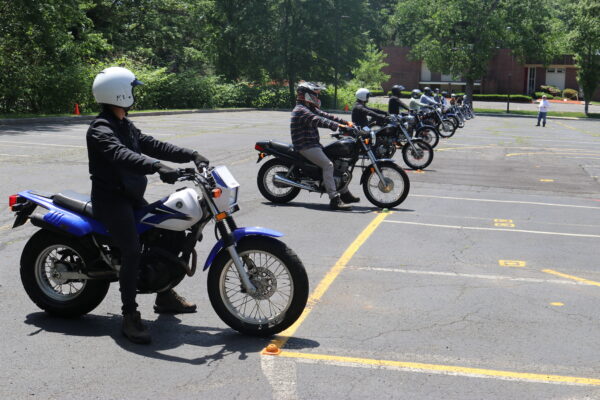
In a beginner rider course last year, I had such a rider. He was taking the course because the motorcycle club that he was a member of requires its members to have a valid motorcycle endorsement to participate in club rides. (What a great idea, I wish more clubs did this!) His goal was to pass the course so he could get the “M” endorsement.
He was an excellent student and took coaching well. After just the first riding session he was surprised to find that he had already learned several techniques he did not know. He also discovered that he’d developed bad habits over the years.
At the end of the course, he told me he felt the course was terrific and that he was amazed how much his riding skills improved in a single weekend. I get the same reaction from other experienced riders who take the course looking to obtain their motorcycle endorsement. They come in with the “I’m just here to get my license” attitude and leave having gained knowledge and techniques that might prevent a crash.
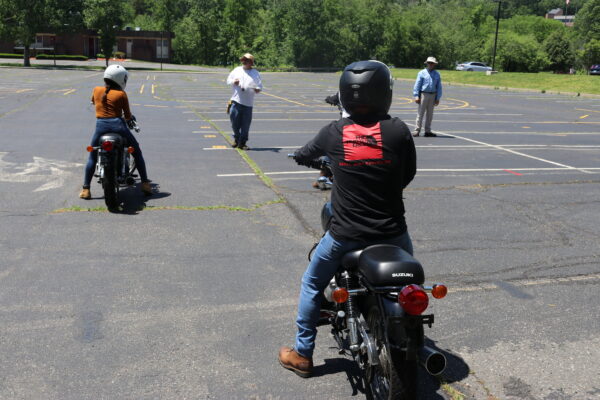
Riding a motorcycle has been one of the joys of my life and I equally enjoy passing on my knowledge gained through years of riding, while adhering to the Motorcycle Safety Foundation’s curriculum. To find a course in Connecticut, visit the website www.ride4ver.org. Courses in other nearby states may be found at www.msf-usa.org.
Hello! If you enjoyed this column, please share it with other motorcyclists by clicking on the social media buttons below.
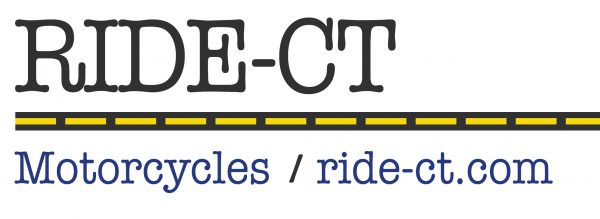 Ride CT & Ride New England Serving New England, NYC and The Hudson Valley!
Ride CT & Ride New England Serving New England, NYC and The Hudson Valley!

